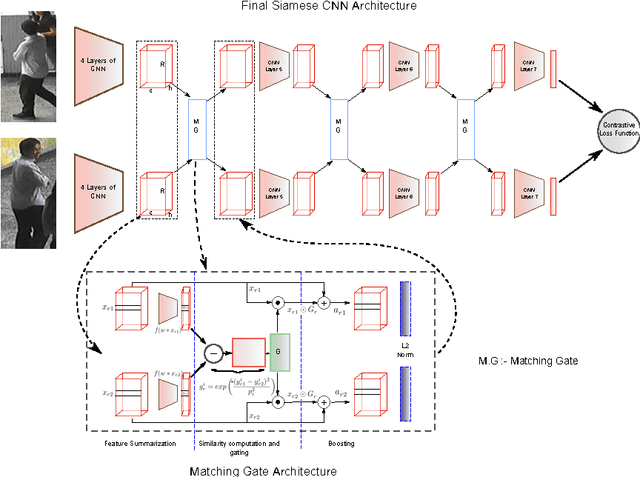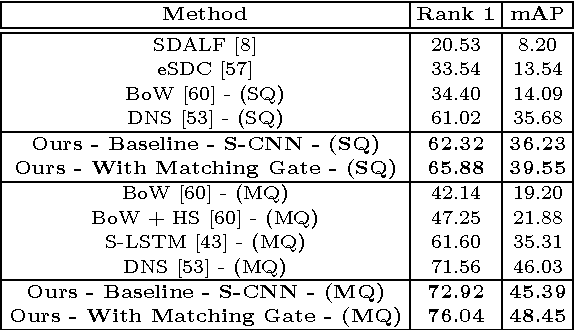Gated Siamese Convolutional Neural Network Architecture for Human Re-Identification
Paper and Code
Sep 26, 2016



Matching pedestrians across multiple camera views, known as human re-identification, is a challenging research problem that has numerous applications in visual surveillance. With the resurgence of Convolutional Neural Networks (CNNs), several end-to-end deep Siamese CNN architectures have been proposed for human re-identification with the objective of projecting the images of similar pairs (i.e. same identity) to be closer to each other and those of dissimilar pairs to be distant from each other. However, current networks extract fixed representations for each image regardless of other images which are paired with it and the comparison with other images is done only at the final level. In this setting, the network is at risk of failing to extract finer local patterns that may be essential to distinguish positive pairs from hard negative pairs. In this paper, we propose a gating function to selectively emphasize such fine common local patterns by comparing the mid-level features across pairs of images. This produces flexible representations for the same image according to the images they are paired with. We conduct experiments on the CUHK03, Market-1501 and VIPeR datasets and demonstrate improved performance compared to a baseline Siamese CNN architecture.
 Add to Chrome
Add to Chrome Add to Firefox
Add to Firefox Add to Edge
Add to Edge